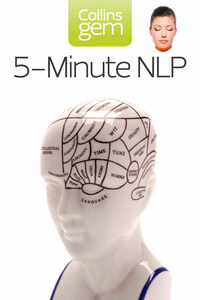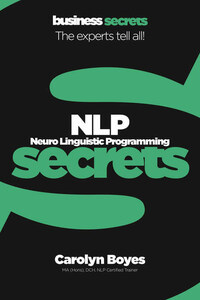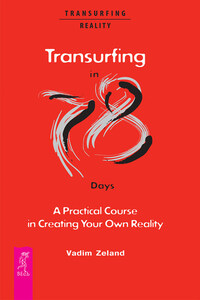In essence, NLP consists of a methodology and a series of techniques for achieving excellence in day to day life. Its structure comes from âmodellingâ people who are successful in many different areas. NLP teaches that it is not what happens to you that makes a difference, but what you do with it.
The term âNeuro-Linguistic Programmingâ refers to the unconscious processes we use to produce behaviour â and therefore results.
Each component of the name is important: Neuro refers to the nervous system. Our experience of the world enters the brain via the nervous system and the five senses:
visual â seeing
auditory â hearing
kinaesthetic â touch
olfactory â smell
gustatory â taste.
One of the first things that NLP is concerned with is how we process this sensory experience and translate it into conscious and unconscious thought.
Linguistic refers to language, specifically the way we use language to give meaning to experience. You communicate your unconscious and conscious thoughts both verbally and non-verbally.
Programming indicates the ways in which we consistently think or behave. Just like a computer, each of us runs specific programmes to produce our behaviour. Programmes consist of a series of steps that automatically produce certain results in different circumstances. NLP can reveal the programmes you run and the results they produce. It also gives you the means to change your own and other peopleâs programmes to produce the results you want.
At the heart of NLP is the belief that anyone can achieve success by learning how other people get their results. This is called âmodellingâ.
Modelling
To model someone, you identify a person who does something excellently and you observe how he does it, specifically by looking at, questioning and analysing him to discover:
⢠that personâs language, i.e. the words he uses and the structure of his language
⢠his physiology, i.e. how he uses his body
⢠his thinking, beliefs and values, unconscious and conscious.
By copying what that person does in these three areas, you can also achieve excellent results. NLP has an efficient toolkit of techniques to help you do this.
THE HISTORY OF NLP
Given the technical-sounding name, it is not surprising that Neuro-Linguistic Programming was invented by two academics: John Grinder, an assistant professor of linguistics at the University of Santa Cruz, California, and Richard Bandler, who had studied a range of subjects from Gestalt therapy to maths and computing.














